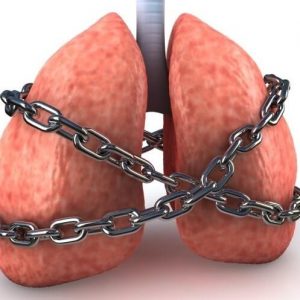The research study was supposed to be offered at the American Physiological Society yearly meeting in San Diego this month, yet the event was terminated as a result of the COVID-19 break out. The abstract is released in The FASEB Journal.
A new research study might assist discuss why clients with trauma (PTSD) are more probable to create cardiovascular disease at an earlier age than those without the disease.
In the study, scientists located proof of tiny blood vessel disorder which seems driven by the considerate nervous system– the system behind the fight-or-flight response– along with oxidative stress, an inequality in between totally free radicals and antioxidants in the bloodstream.
Issues in the small capillary are typically a precursor to stiffening or tightening of the larger arteries, which can cause a cardiovascular disease, stroke or various other forms of heart problem.
” We have actually located that blood vessel disorder is extra widespread in young people with PTSD than those without,” claimed lead study writer Jennifer Weggen, a Ph.D. trainee at Virginia Commonwealth University. “We hypothesize that both oxidative stress and anxiety and overactivity of the supportive nerve system, individually as well as en masse, might inevitably lead to a raised threat of heart disease.”
In any given year about 8 million U.S. adults experience PTSD, a mental wellness disorder caused by observing or experiencing a distressing event. Prior research has actually shown that PTSD raises an individual’s chances of having heart problem by as much as 50%.
To check out the course from PTSD to heart problem, the researchers conducted a collection of cardiovascular assessments in 16 clients with PTSD and 24 healthy volunteers with comparable demographics. The average age in both teams was 24 years old.
The PTSD individuals got two analyses as well as taken in either an antioxidant supplement containing vitamin C, vitamin E as well as alpha lipoic acid or a placebo ahead of time.
Healthy and balanced arteries respond to changes in blood circulation by unwinding and restricting. The researchers discovered that all individuals had typical feedbacks in the brachial artery, an artery in the arm.
The participants with PTSD revealed a significantly reduced amount of blood streaming via a given part of the brachial artery throughout screening which reflects uncommon feedbacks in the smaller vessels even more downstream. These patients likewise had a lower variation in the time periods between heart beats, a pen of enhanced considerate nervous system activation.
Significantly, those differences essentially vanished when the participants consumed an antioxidant supplement, suggesting oxidative stress plays a role in both the little vessel disorder and the thoughtful nerve system activity.
Free radicals normally take place in the body as an outcome of normal physical procedures, however the body makes its very own antioxidants to maintain them in check. Oxidative anxiety happens when the cost-free radicals overwhelm the body’s antioxidant defenses.
” Supplementing with an antioxidant mixed drink tipped the balance back to balance, decreasing oxidative anxiety,” stated Weggen. She advised that antioxidants were used in the research study only to understand the potential function of oxidative tension, not to examine the supplements as a potential therapy.
” The recommendation of normal use of anti-oxidants particularly for therapy of PTSD would certainly be early, as no researches have confirmed its efficiency or safety and proper dosage is unidentified. Every person responds in different ways to antioxidant supplements, and also not everybody might reap benefits. Seeking medical assistance would be sensible before taking dietary supplements,” claimed Weggen.
Oxidative tension can likewise be lowered by fortifying the body’s very own antioxidant protection systems through lifestyle adjustments such as workout, diet regimen, stress decrease and meditation. More research studies could help shed light on whether these approaches work for moderating the oxidant-antioxidant equilibrium in individuals with PTSD, Weggen noted.


